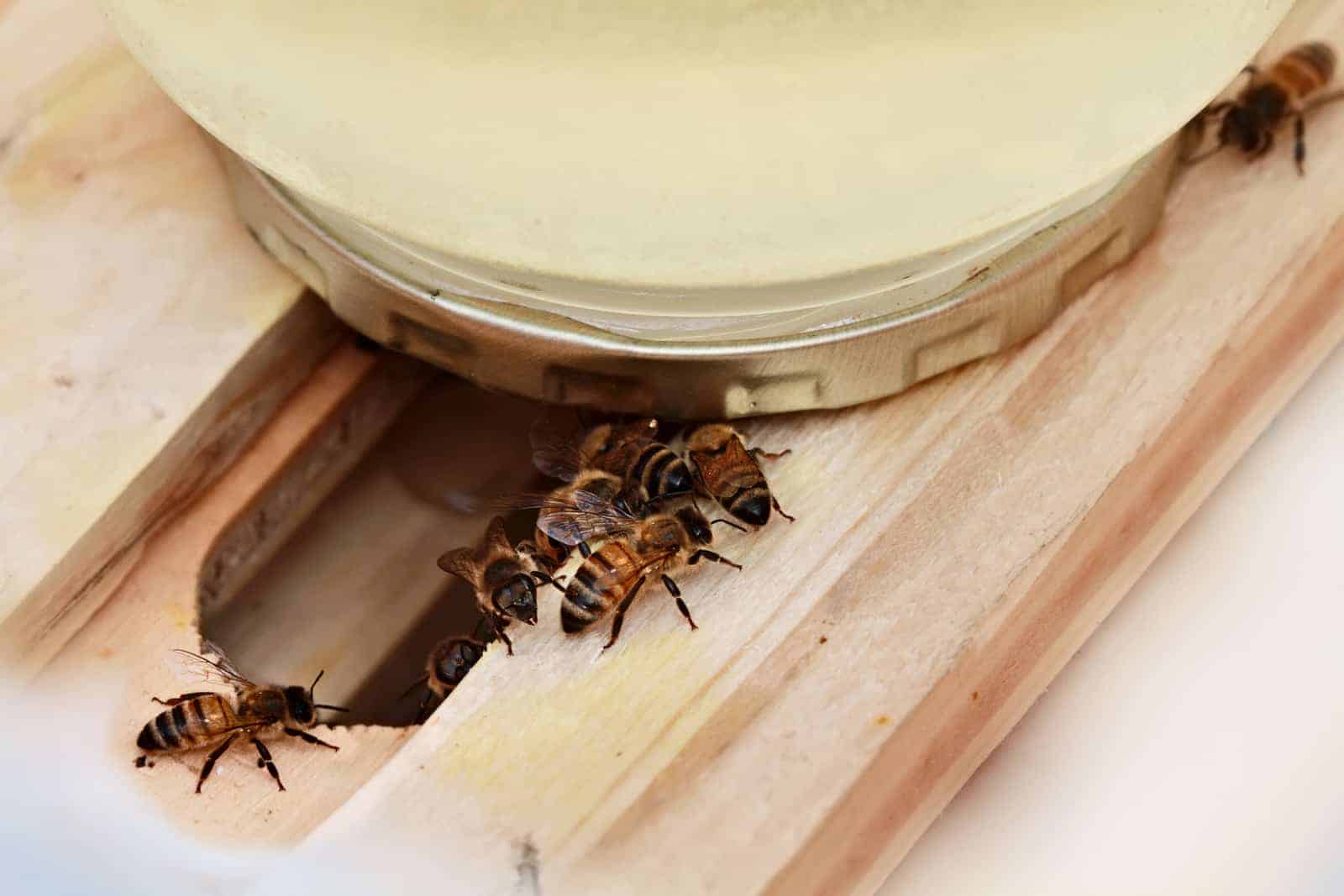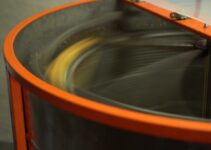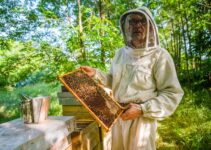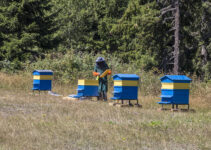If you’re a beekeeper, the likelihood of feeding your bees artificial food is pretty high. This is because it helps speed up production and reproduction. Of course, increasing each of these is superb as more honey will be created and, most importantly, more bees, making your bee colony much more significant. But that leads us to this question. Can you overfeed bees?
Yes, you can overfeed bees, and it can have devastating consequences. In the event that you do overfeed them, it can stimulate the bees to swarm or overproduce brood. Either way, it’s not healthy for the bees and colony, so avoid overfeeding them.
As you can see, it is possible to overfeed your bees. If you want to know why you should stop feeding bees, I suggest you become familiar with the below. Here we go into detail about the reasons you should stop feeding bees, along with various other queries based on the topic.
Reasons why you should stop feeding bees
While feeding bees can be vital and sometimes a necessity, you need to feed them with caution. Overfeeding can cause awful outcomes to the bee colony, which you should avoid at all costs. But, what are the reasons to stop feeding bees?
Wrong nutrients
Primarily, people and beekeepers feed bees sugar and water. Sometimes this food will mix up, but this is the go-to for most individuals. However, although they’ll feed off the sugar and water, it doesn’t provide the correct nutrients for production and reproduction.
The primary food source they eat is nectar, which is collected from vegetation during the pollination process. This is because it provides all the essential vitamins, enzymes, amino acids, and other nutrients to help with production and reproduction.
Although nectar offers them some superb support for production and reproduction, it actually helps protect the bee. When they consume nectar, there boosting their immune system, which can help fight off parasites.
After reading the above, I’m sure both you and I can say bees should have a nectar-only diet. Well, not primarily water and sugar. The only time you should use this food source is in extreme cases. For example, if a bee is exhausted, you’ll want to re-energize them.
However, you can also run into far more negatives from providing the wrong nutrients to bees.
pH balance
The following most prominent reason you should stop feeding bees is the pH balance between sugar water and honey. When honey is produced, the pH levels range between 3.2 and 4.5. Whereas with sugar water, it’s around 6.0 (depending on your water source).
From a non-expert viewpoint, that may not seem like a problem. However, with beekeepers, they can undoubtedly see an issue here. Diseases and pests such as chalkbrood and varroa mite actually thrive at higher pH levels. Of course, if the bee consumes too much sugar water, the pH levels will change in the honey.
So, if you’re wanting to reduce the possibilities of ruining your honey, you may want to consider keeping them to a nectar-only diet. Of course, you should use sugar water in extreme circumstances, like when a bee is exhausted.
Production
Including the above, it also tapers with the production quality of honey. As mentioned, when the higher pH level of sugar water is consumed, it reflects onto their honey production. Because of the increase of pH, it’s almost like they’re not creating genuine honey as it’s been mutated into something with a higher pH level.
As you can see, there are various reasons why you shouldn’t feed your bees, and especially overfeeding them. It can course a whole load of product and reproduction issues, and a bee should only consume artificial food in extreme circumstances.
But, of course, we sometimes need to feed bees. To gain a better insight into when you should do this, see the below.
When should you feed bees?
Although we’ve stated above that you shouldn’t feed bees, there are some circumstances that you may need to. However, remember to act under strict rules when choosing to feed them. It’s much better for them to gain natural nectar than to consume sugary water. So, when should you feed bees?
Exhaustion
The first reason to feed sugary bee water will be if they’re exhausted. Typically, bees with weak colonies will have to work overtime to increase production and reproduction rates. The colony can become stronger over time, and ultimately lead them to a much more leisurely lifestyle. This is something all bees aim for, so you may encounter your bees becoming exhausted if the colony isn’t strong enough.
When a bee is exhausted, they won’t be flying. Instead, they’ll just be sitting there doing nothing. Even if you try and shoo them away, they still shouldn’t move. This is a massive indication that the bee is exhausted. If this occurs, put a mixture of just a teaspoon of sugar and water next to it. Over time, it’ll move closer to it and gain that energy spike from the sugar.
Weak colony
If you notice a large number of exhausted bees, it’s a good indication that the colony is weak. Because of this, you’ll want to increase their energy levels and production rates by putting sugary water next to the hive. The amount you’ll need to put there will differ depending on large the hive is. However, always go less, then too much. As we’ve mentioned previously in this post, we want to avoid overfeeding at all costs.
New colony
Lastly, many people supply sugar water to a new colony. To begin with, new colonies are usually weak. Because of this, if you supply them an extra boost of energy, you should almost help them increase their production levels and reproduction rates. If you can achieve this successfully, you’ll have a fully established colony, way before you ever would naturally. This is superb and something all beekeepers want to achieve.
Conclusion
After reading, you should now know the answer to “can you overfeed bees”. As you can see, you can, and it can be hugely problematic if you do. Therefore, you should try and avoid this at all costs and only feed bees sugary water as a last resort.




